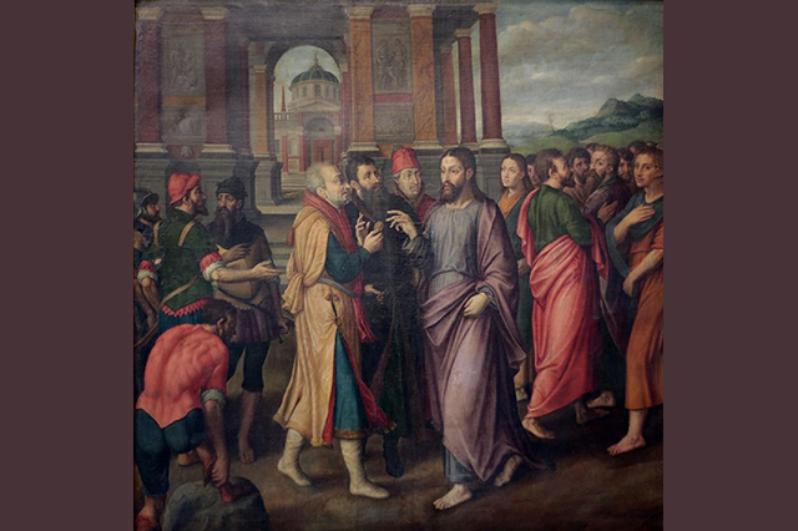Reflection for Oct. 22, Twenty-Ninth Sunday in Ordinary Time
Is 45:1, 4-6
Ps 96:1, 3, 4-5, 7-8, 9-10
1 Thes 1:1-5b
Mt 22:15-21
"I am the Lord, there is no other." The prophet Isaiah tells us in simple, evocative words. God's power is universal, loving, and mysterious. And all earthly power comes from God, as Isaiah reminds the Israelites.
To confess God's power has profound meaning for our personal life. For when we trust that God is the source of all power, we place ourselves in the merciful hands of God, with confident faith and humble thanksgiving.
It is this Christian attitude of thanksgiving and deep trust in God that Paul praises in today's second reading. The apostle describes the Thessalonians as an early Christian community whose faith, hope, and love of Jesus Christ radiated from their words and actions. This was the path of Christian discipleship then and it remains the essence of every follower of Jesus today.
The challenge of today's Gospel lies in finding the balance between being disciples of Jesus Christ and being good citizens of society and the world. Jesus offers the religious leaders of his day an answer to this perennial task by answering their question with a question. He asks them to produce a coin used to pay taxes and asks them to describe the coin -- "Whose head is this and whose inscription is on it?" Then Jesus tells them that the coin that bears the image and name of Caesar should be given to Caesar. With that, he reminds them of their religious obligations: "Give to God what belongs to God."
Jesus confronts them, and us, with a fundamental question. Do we give to God what rightfully belongs to our creator who is the all-powerful origin of the universe -- the gift of our entire heart, mind, and soul?
The religious leaders of Jesus' time set up the question in such a way that one had to choose between loyalty to political power or faithfulness to God. They create an either/or situation, a false dilemma between choosing to pay taxes, as good citizens would do, and serving God with one's words and actions.
Jesus' answer cuts right through their false dilemma to show that the Christian life is not an either/or situation. A disciple of Jesus strives to be both a law-abiding citizen and a person of faith who loves God and neighbor. We do so, confident that serving God is our highest priority.
Christian faith requires that we are good citizens, for Christians live in this world, but not of it. Followers of Jesus are often faced with difficult decisions. There are so many "Caesars" competing for our allegiance. As we give to "Caesar," God's word reminds us to not waver in our faithfulness to God in word and deed. May we never stop giving to God what belongs to God who is the origin and end, the meaning and purpose of existence.
As we ponder God's word today, we learn to trust in the strength that comes from God to persevere as missionary disciples of Jesus Christ as we pray, "speak to me, Lord."
Question: How does the challenge of Jesus to be a good citizen and a good disciple speak to you today?


















